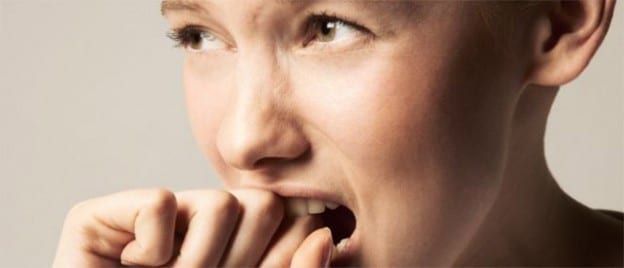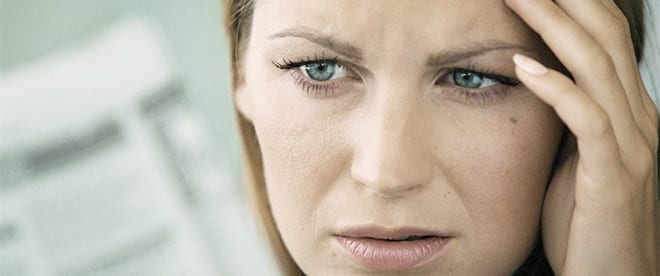
Symptoms and treatment for anxiety disorders
It is not unusual for some mental health problems, especially depression and anxiety, to occur at the same time as long-term illnesses..
For example, you can:
- Having diabetes and feeling sad
- Being depressed and noticing your physical health worsening
- Having asthma and feeling very anxious and sometimes having panic attacks.
Depression and anxiety due to chronic illness
People with chronic diseases such as arthritis, asthma, diabetescancer, heart disease, hepatitis C, often also has depression.
Depression also occurs when chronic pain is present. Depression can occur with these problems because:
- The everyday stress of dealing with a chronic illness causes depression or makes it worse
- People with depression often find it very hard to take care of themselves, which can lead to health problems.
- People with depression tend to eat poorly, exercise less and smoke.
- Some chronic diseases change the body's chemistry and help to cause depression. Cushing's syndrome and hypothyroidism are examples of this.
Depression is linked to some chronic diseases. For example, heart attack is positively or negatively influenced by lifestyle, emotions and other behavioural factors. And it is increasingly hypothesised that negative emotions influence the development of coronary heart disease.
Speaking of emotions, anxiety is an emotional reaction to situations that are interpreted by the subject as a threat. It is usually accompanied by negative feelings and thoughts about oneself. And at the same time there is usually a high physiological activation, especially of the autonomic nervous system and the somatic system, as well as disorganised behaviour.
Anxiety and depression increase medical complications in patients with chronic diseases.
Chronic illness can lead to lifestyle changes and these changes can be stressful.. Giving up activities we enjoy, having physical limitations, needing help from others to do some daily tasks or paying high medical costs can lead to stress and anxiety.
In this regard, a study of people with chronic tension headaches showed that they performed worse at work and socially performed less well and were three to fifteen times more likely to be diagnosed with anxiety.
Physical limitations resulting from heart disease or other chronic illnesses such as arthritis or lung disease are common causes of depression, especially among older people.
Anxiety symptoms
A distinction must be made between stress and anxiety. Stress is caused by a stressor that exists. Anxiety continues to exist when the stressor has already disappeared..
The normal symptom of anxiety is worry.. When the worry lasts for at least six months, generalised anxiety disorder can develop, which can lead to social, work and family problems.

Concern may be accompanied by:
- Concentration problems
- Fatigue
- Irritable state
- Difficulty falling asleep and sleeping, or sleep that is not restorative
- Restlessness or worry upon waking up
- Physical symptoms may also occur, such as shortness of breath, excessive sweating, muscle tension or stomach complaints.
Treatment for anxiety
- The conventional medicine often uses the medication to treat anxiety.
Prior to the start of treatment, the doctor makes a diagnostic assessment. If he/she considers that there is an anxiety disorder, or a combination of disorders, all existing disorders should be identified, because sometimes alcoholism or other coexisting illnesses have to be solved before the anxiety disorder itself, due to the mental influence they have on the individual.
It is also important to consider whether the patient took medication beforehand and whether they took it properly, because many times patients believe that their treatment failed, and it turns out that it did not fail, but that it was administered incorrectly or not for a certain period of time.
Medication, usually consisting of anxiolytics, antidepressants and beta-blockers, is used to keep the patient under control while the person receives psychotherapy.usually administered by a psychiatrist, who may sometimes act in combination with a psychologist or social worker.
- In the biological medicinethere are natural treatmentssuch as the treatment with the Bach Flowers to regain emotional balance.

The first step is to make an analysis that indicates the Bach flowers that are necessary at the time to bring you to emotional balance. The Bach Flower Analysis is a blood test that reveals the existence of alterations in your state of mind and informs us of the Bach Flowers needed to restore it.. We recommend it for anyone, as nowadays everything that happens to us is related to our emotional state. Moreover, it is an analysis or test that is totally compatible with any treatment we are taking, be it tranquilisers, sleeping pills, anxiolytics, antidepressants, etc.
The Bach Flower theory is based on the attempt to counteract the negative lunar effects on the human personality.. And every physical illness is in reality a reflection of the soul. Every illness needs the mental impulse of the sufferer to heal. And also flower remedies, the Bach flowers, which are there to help the individual to fight against his negative mental forces.

